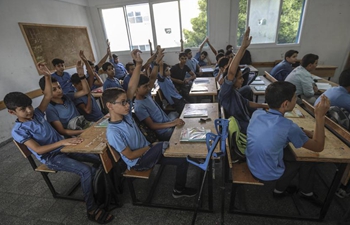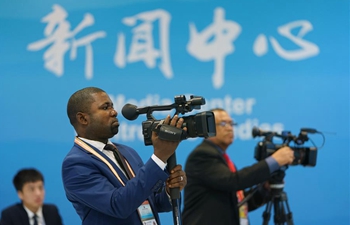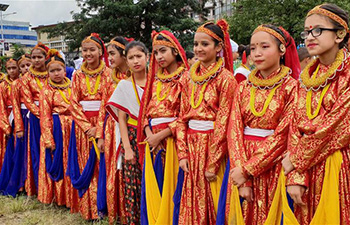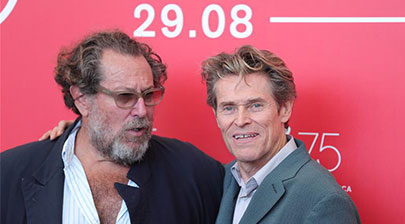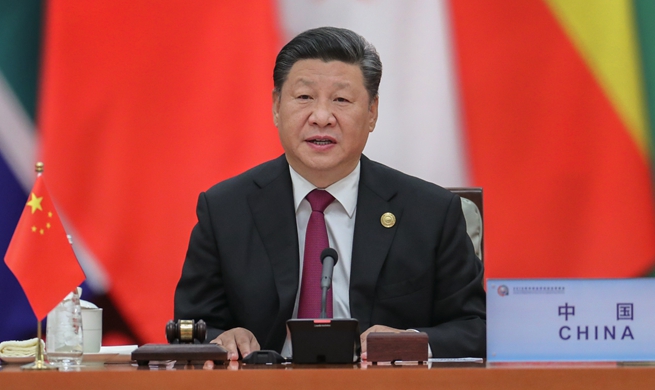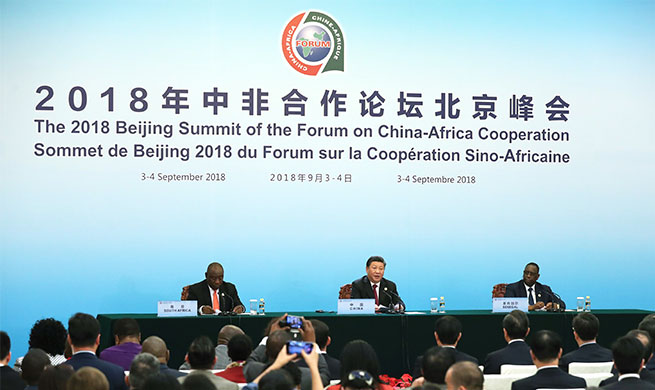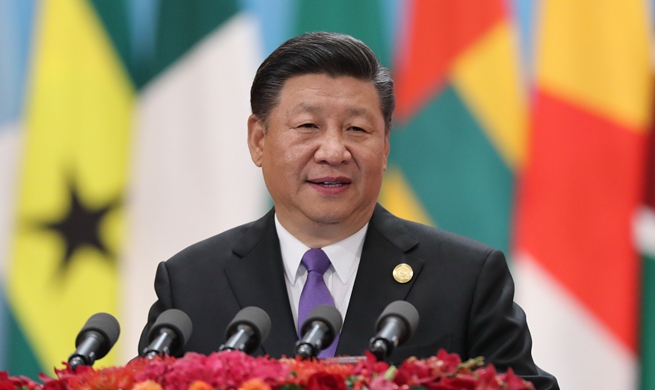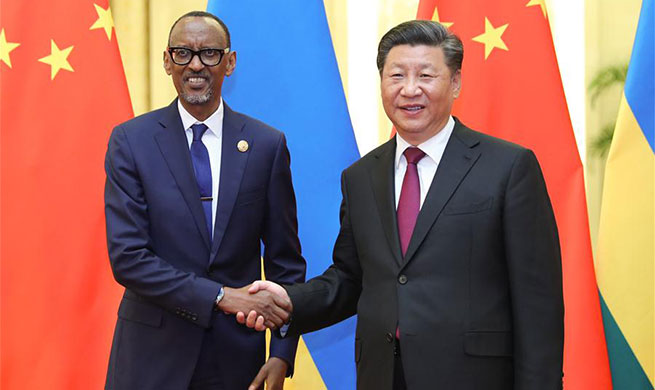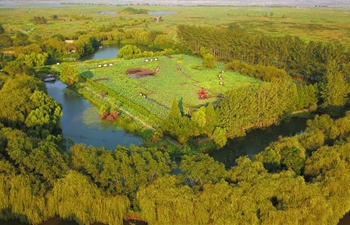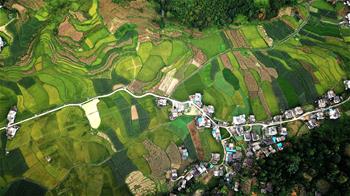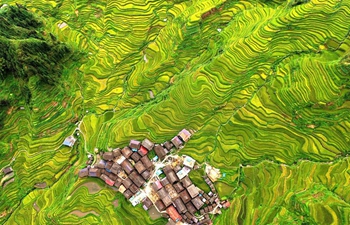ISLAMABAD, Sept. 5 (Xinhua) -- Arif Alvi, a senior leader of the ruling Pakistan Tehreek-e-Insaf (PTI), was elected as the new president of the South Asian country on Tuesday, according to a statement from the Election Commission of Pakistan (ECP).
The ECP announced at its website that the official result count shall be prepared and forwarded to the federal government on Wednesday after receipt of the original record for issuance of formal notification.
Three candidates competed for the slot of the 13th president of the country for the next five-year term.
On the basis of initial counting, the ECP said that Arif Alvi received a total of 353 votes in both houses of the country's parliament and four provincial assemblies.
The statement said that Fazal-ur-Rehman, a joint candidate of five opposition parties, bagged 185 votes while Aitzaz Ahsan of opposition Pakistan Peoples Party (PPP) got 124 votes.
Alvi managed to get a healthy vote count from all five polling stations established in the parliament and four provincial assemblies.
Alvi secured 212 votes in the joint session of the two houses of the parliament, including the Senate and the National Assembly, 45 votes from southwest Balochistan province, 41 from northwest Khyber Pakhtunkhwa province, 33 votes from eastern Punjab province and 22 votes from southern Sindh province.
The trio has been asked to appear in person or through their agents in the ECP Secretariat in Islamabad on Wednesday to witness the tabulation process, after which the official result will be announced.
Alvi will replace the country's incumbent President Mamnoon Hussain, who will complete his five-year term on Saturday.
The newly-elected president can be sworn in at any time after the federal government issues a notification, but he would be able to assume the office once Hussain's term concludes.
Alvi, a founding member of PTI, was elected member of the National Assembly in the general elections on July 25 from his home constituency in the southern port city of Karachi, and is considered very close to Pakistani Prime Minister Imran Khan.
He served as secretary general of the PTI for several years.
Before taking oath as president of the country, he will have to resign from the national assembly, according to the country's constitution.
Although the presidency in Pakistan is currently symbolic, Alvi's overwhelming election will strengthen the ruling PTI's governance. The ruling party now holds all the top government positions.
It was almost a walkover for the PTI candidate to win the election as the opposition parties failed to agree on a joint candidate.
Fazal-ur-Rehman reportedly met with the PPP's co-chairman Asif Ali Zardari and requested him to withdraw in his favor but the latter refused. The opposition parties were also divided during the last month election of the prime minister.
President of the major opposition Pakistan Muslim League-Nawaz (PML-N) Shehbaz Sharif had refused to accept Aitzaz Ahsan as the joint opposition candidate for Tuesday's election as the PPP refused to vote for Shehbaz Sharif when he contested election for the slot of the country's prime minister last month.
Local political watchers said that even the two groups of the opposition got united, their combined votes were much lower than that of Alvi.
In his victory speech after witnessing the initial results at the parliament, Alvi said, "I am grateful to God that the PTI-nominated candidate has been successful in the presidential race. From today I am not just a president that was nominated by the PTI but I am the president of the entire nation and all parties."
The 69-year-old Alvi said he would play the best possible role to improve the living standard of common Pakistanis by providing them with health facilities, justice and shelter.
